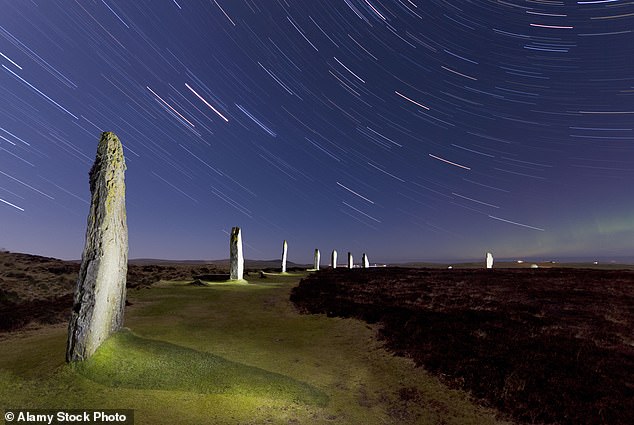[ad_1]
If it feels like the summer is slipping away faster than ever, you’re not alone.
On July 9, the world experienced one of the shortest days in recorded history, at 1.3 milliseconds shorter than the average day.
Now, scientists have revealed exactly when the next shortest days will occur as Earth’s rotation speeds up once again.
Scientists predict that July 22 and August 5 will be even shorter than July 9, at 1.38 and 1.51 milliseconds shorter than average.
This is because the moon will be at its furthest point from Earth, reducing how much the tides hold back the planet’s rotation.
Since an average blink lasts about 100 milliseconds, you won’t be able to notice this difference.
However, Earth’s rotation has been unexpectedly speeding up over the last few years, with atomic clocks picking up the change in 2020 and 2022.
While scientists have suggested multiple theories from changes in the atmosphere to the weakening magnetic field, the exact reason for the acceleration remains a mystery.

Scientists have found that two upcoming days this summer will be among the shortest ever recorded. July 22 and August 5 will be even shorter than July 9, at 1.38 and 1.51 milliseconds shorter than average (stock image)
Normally, the Earth takes 24 hours, or 86,400 seconds, to rotate fully on its axis in a ‘solar day’.
While this constant might be something we often take for granted, the Earth’s rotation isn’t actually stable.
On average, the Earth is actually slowing down by about two milliseconds per century.
This means that a T Rex in the Mesozoic era, about 250 million years ago, lived through days that were 23 hours long.
Even as early as the Bronze Age, the average day was about 0.47 seconds shorter, and in 200 million years’ time, the days will be 25 hours long.
This slowing is largely due to the pull of the moon in a process called tidal braking.
When the moon’s gravity pulls on Earth, it causes the oceans to bulge out slightly.
In addition to creating the tides, this tug actually pulls Earth backwards and slows its rotation.

These short days are caused by the moon being at its furthest from Earth. This reduces an effect called tidal braking and allows the planet to spin faster
However, when the moon is at its furthest point from Earth, known as the apogee, this pull is weaker and the planet can spin faster than normal.
That is why July 22 and August 5 will be so much faster than other days this year.
But these exceptionally short days are only possible because the Earth is currently in an unusual phase of acceleration.
This change has been so sudden that some experts think we will need to subtract a leap second for the first time ever in 2029.
Prior to 2020, there had never been a day much more than a millisecond shorter than average according to the US Naval Observatory and international Earth rotation services.
Now, scientists have recorded a string of days more than 1.3 milliseconds shorter than normal.
The shortest day ever recorded occurred on July 5 last year, which was a full 1.66 milliseconds shorter.
Dr Leonid Zotov, a leading authority on Earth rotation at Moscow State University, told Time and Date: ‘Nobody expected this. The cause of this acceleration is not explained.’

Since 2020, scientists using atomic clocks have noticed that Earth’s acceleration has been accelerating. But scientists are not sure why this is taking place (stock image)

Overall, scientists expected the planet’s rotation to slow. This is partly due to the slowing rotation of the inner core, which affects Earth’s rotation in space
Most scientists believe that this is due to something changing deep within Earth’s core, which is affecting the planet’s momentum.
In the future, Dr Zotov and other scientists expect that the trend will return to gradual slowing.
‘I think we have reached the minimum. Sooner or later, Earth will decelerate,’ says Dr Zotov.
This is because there are a number of factors which are jointly working to slow the planet down.
In addition to tidal braking, scientists also found that the planet’s inner core began to slow around 2010 and is now moving backwards, subtly affecting the Earth’s rotation in space.
This is expected to slightly slow the planet down over the coming years.
Likewise, recent research shows that melting ice and moving groundwater, linked to climate change, have increased the length of our days by 1.33 milliseconds per century between 2000 and 2018.
[ad_2]
This article was originally published by a www.dailymail.co.uk . Read the Original article here. .

